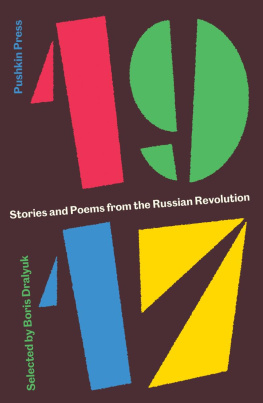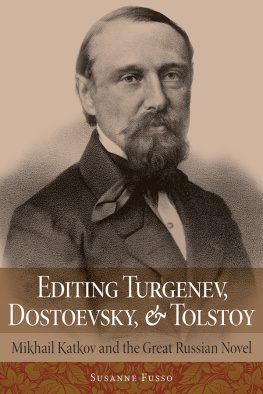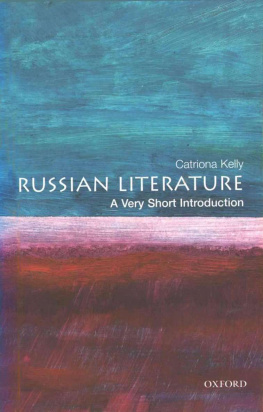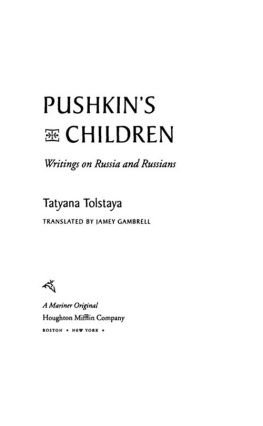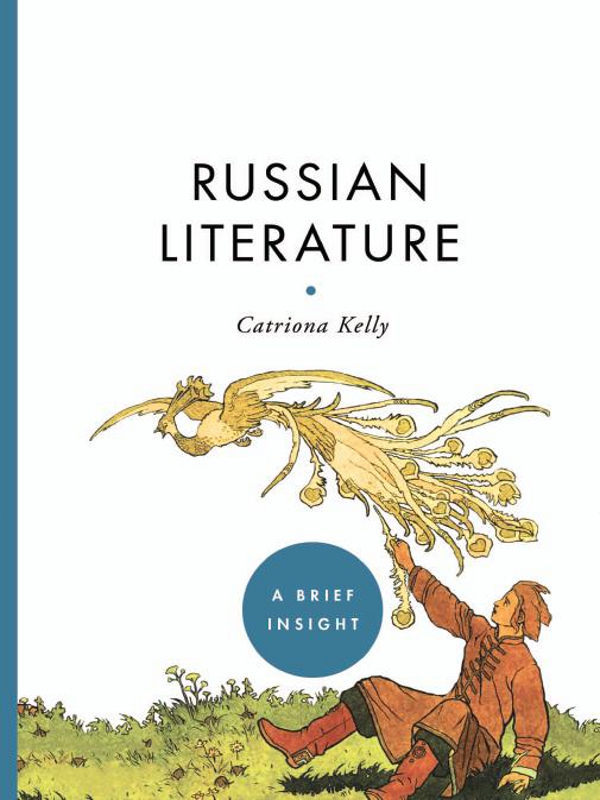
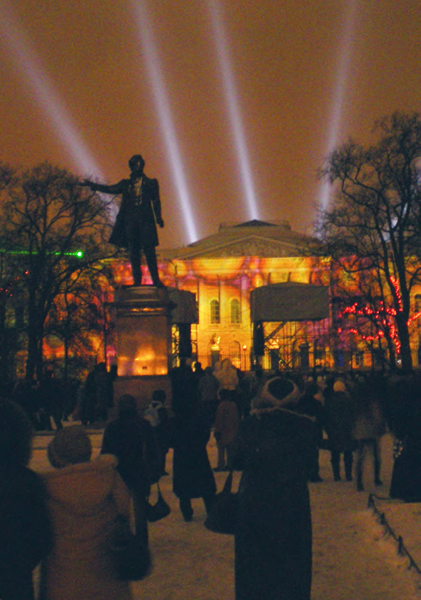
RUSSIAN
LITERATURE

Catriona Kelly


New York / London
www.sterlingpublishing.com
STERLING and the distinctive Sterling logo are registered trademarks of Sterling Publishing Co., Inc.
Library of Congress Cataloging-in-Publication Data
Kelly, Catriona.
Russian literature: a brief insight / Catriona Kelly. Illustrated ed.
p. cm.
ISBN 978-1-4027-7541-3
1. Russian literatureHistory and criticism. I. Title.
PG2950.K43 2010
891.709dc22
2010008017
10 9 8 7 6 5 4 3 2 1
Published by Sterling Publishing Co., Inc.
387 Park Avenue South, New York, NY 10016
Published by arrangement with Oxford University Press, Inc.
Original text Catriona Kelly 2001
Illustrated edition published in 2010 by Sterling Publishing Co., Inc.
Additional text 2010 Sterling Publishing Co., Inc.
Distributed in Canada by Sterling Publishing
C/o Canadian Manda Group, 165 Dufferin Street
Toronto, Ontario, Canada M6K 3H6
Book design: Faceout Studio
Please see picture credits on page 203 for image copyright information.
All rights reserved
Sterling ISBN 978-1-4027-7541-3
Sterling ISBN 13: 978-1-4027-8228-2
For information about custom editions, special sales, premium and corporate purchases, please contact Sterling Special Sales Department at 800-805-5489 or specialsales@sterlingpublishing.com.
Frontispiece: A celebration in St. Petersburgs Arts Square. A 1957 monument to Pushkin (sculptor Mikhail Anikushin, architect V. Petrov) stands before the Russian Museum, housed in the Mikhailovsky Palace.
CONTENTS
TWO I Have Raised Myself a Monument:
Writer Memorials and Cults
THREE Tidings of Me Will Go Out Over All Great Rus:
Pushkin and the Russian Literary Canon
FOUR I Shall Be Famous as Long as Another Poet Lives:
Writers Responses to Pushkin
FIVE Awakening Noble Feelings with My Lyre:
Writers as Masters of Minds
SIX And Dont Dispute with Fools:
Men, Women, and Society
SEVEN Every Tribe and Every Tongue Will Name Me:
Russian Literature and Primitive Culture
EIGHT O Muse, Be Obedient to the Command of God:
The Spiritual and Material Worlds
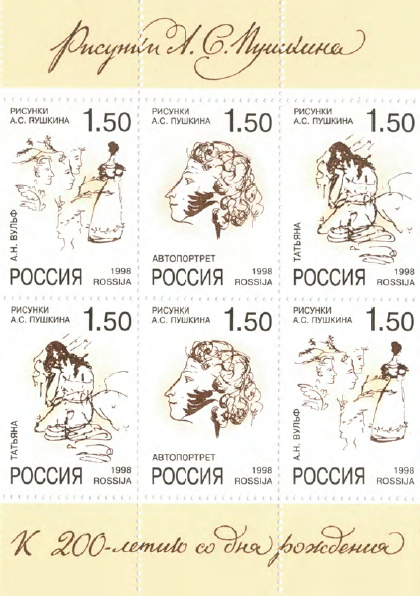
Drawings by Pushkin, including a self-portrait, on Russian stamps, produced to mark the 200th anniversary of the poets birth.
INTRODUCTIONS TO RUSSIAN LITERATURE , like introductions to national literatures more generally, traditionally take three forms. One type is an outline of what is known as the canon, the lives and works of famous writersPushkin, Dostoevsky, Tolstoy, Turgenev, Chekhov, with a supporting cast of lesser figures from the nineteenth century, and of major ones from the twentieth. A second type is a sketch of literary movements and cultural institutions: Neo-Classicism, Romanticism, Realism, Symbolism, Modernism, Socialist Realism; censorship, the Soviet Writers Union, and literary dissidence. A third way of approaching the exercise, one preferred by writers as opposed to academics, is personal appreciation. In, say, Vladimir Nabokovs Lectures on Russian Literature, or Joseph Brodskys Less than One, the selection of material is explicitly subjective, and vehement advocacy of some writers sits alongside equally energetic debunking of others.
There are also less obvious ways of writing introductions. One is the survey organized round a strong central thesis. Yury Tynyanovs brilliant book Archaists and Innovators (1929), for instance, argued that literary evolution developed out of writers attitudes towards existing texts, whose ways of representing the world might be inertly copied, actively rejected, or at once absorbed and transformed. Another is the in-depth analysis of some technical aspect of the literary language. Mikhail Gasparovs history of Russian versification, for example, examines how preferences for metrical forms have changed over the course of time and scrutinizes the weight of meaning carried by particular metrical measures at a given point in history.
This book does not fall into any of these categories, least of all the first two. There are many excellent linear outlines of Russian literary history already: there is no place for another one, particularly not one that would need to simplify beyond recognition a literary culture with a large number of important writers, many of whom wrote big, complex books. Equally, I am wary of settling on some central big idea, given that there are already far too many ruminations on Russian literature that reduce sophisticated texts to inane clichs: the superfluous man as the central theme of fiction, and so on. On the other hand, a theoretical discussion such as Tynyanovs needs room to breathe, and is hard to follow if the source material it attempts to explain is unfamiliar. So what I have decided to do is to follow the lead of an earlier Brief Insight, Mary Beard and John Hendersons eloquent and captivating Classics. Rather than running through the Peloponnesian Wars, Greeks and Persians, Athens as the birthplace of democracy, Rome as the birthplace of plumbing, the Conquest of Britain, and other landmarks of the subject as it used to be taught in the school room, Classics focuses on one particular artifact, the friezes from the Temple of Apollo at Bassae in Arcadia, using them as the starting point of a wide-ranging exploration of issues that are of current concern in the professional study of the Ancient World and of changing attitudes to the classical past.
A comparable way of organizing an introduction, both to Russian literature and to the ways of thinking and arguing about it, is to center it on the Russian equivalent of Shakespeare, if not of the Bassae Marbles, Aleksandr Pushkin (17991837). Pushkins writings themselves touch on many central themes in contemporary literary history, from the colonization of the Caucasus to salon culture. Many different critical approaches have been applied to them, from textology, or the comparison of manuscript variants, to Formalism, to feminism. The development of the Pushkin myth (the writer as the founding father of Russian literature) raises all kinds of interesting questions about how literary history is made, about how the idea of a national literature comes into being, and about the way in which these processes made certain kinds of writing seem marginal (writing by Russian women, for instance).
Approaching a national literature in this way does not mean exposing an act of deception perpetrated on readers by patriotic critics. Pushkinlike Dante, Shakespeare, or Goethewas gifted with outstanding talent and intellectual depth: his writing is profoundly rewarding. But the reputations of such national writers can be intimidating, surrounded as they are by critical guard-dogs, who (as is only to be expected of guard-dogs) often seem less concerned to celebrate what they are protecting than to keep others away from it. Reputations of this kind sometimes generate rather lazy reactions on the part of critics, too. (Consider the phrase I used a couple of sentences earlier, profoundly rewarding: what does this actually mean?) Pushkin and other great Russian writers should not be seen as members of some artistic Politburo, receiving what Soviet meetings used to describe as stormy applause turning into an ovation from a captive audience of contemporaries and later generations. They were often at loggerheads with each other and with the Russian public, while the efforts of successive regimes to press dead writers into service as prophets of official ideologies stood in stark contrast to the intolerance of the same regimes for living writers who would not keep their mouths shut (or their pens at rest). There is quite a lot in this book that is controversial, too, but it is meant to be provocative in an active senseto stimulate reflection and debate. You will not finish it knowing everything there is to know about Russian literature, but you might, I hope, be inspired to find out more about one of the worlds great literary cultures and to share my enthusiasm for thinking and writing about it.
Next page

